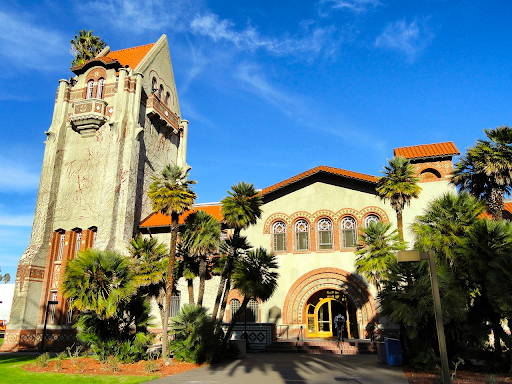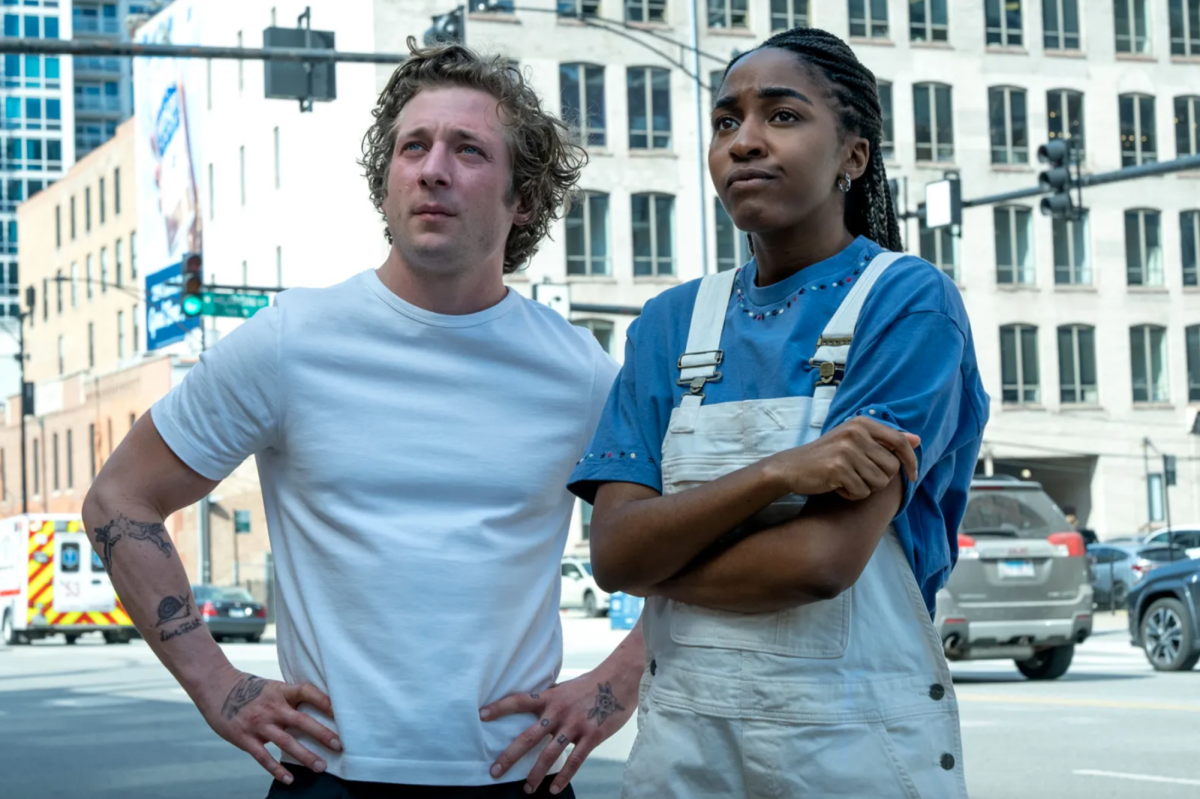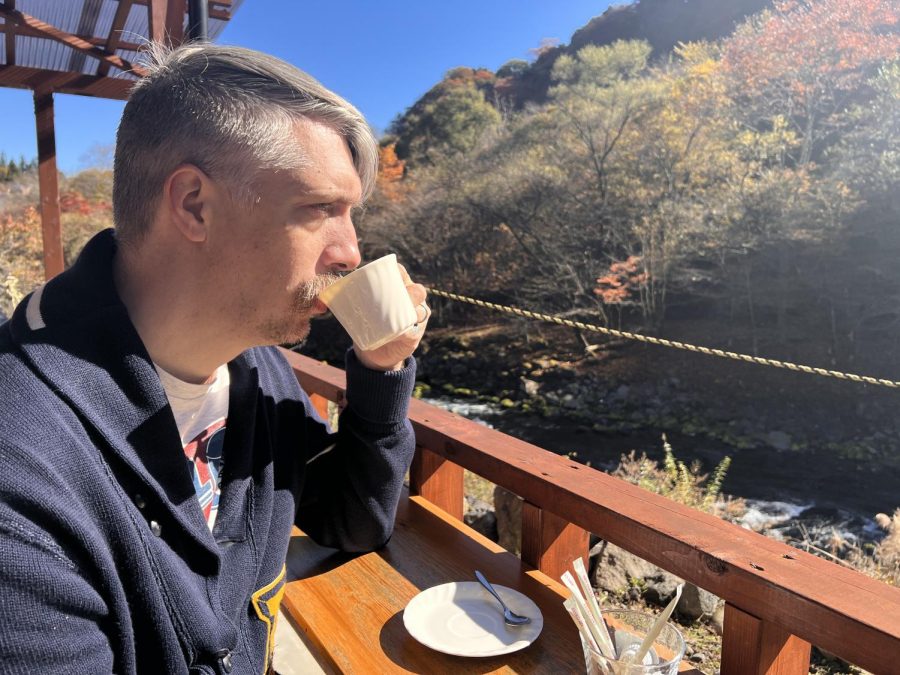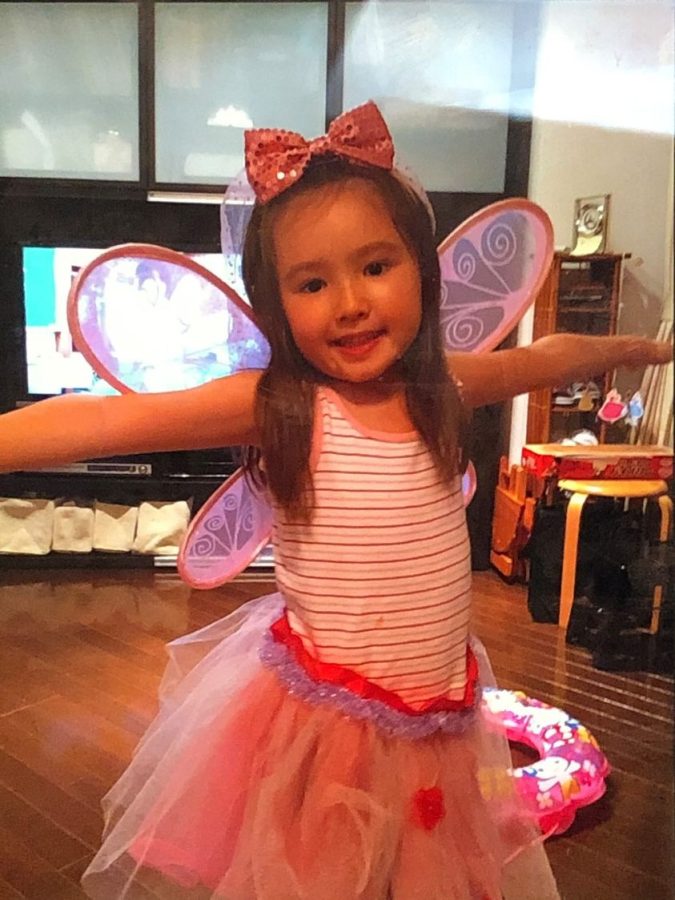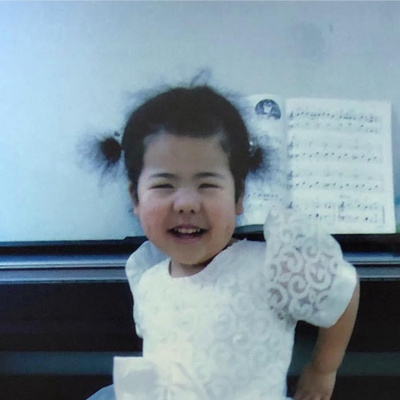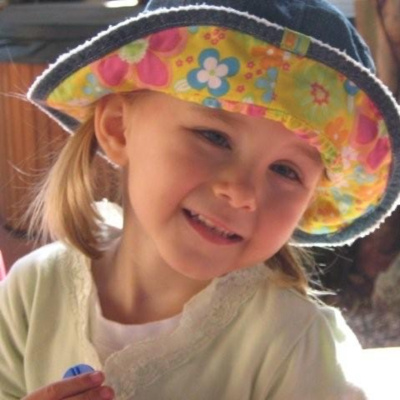Student leaders on leadership at Sacred Heart
With 140 official leadership roles offered in the Sacred Heart, there come many ambitious, hard-working students who work tirelessly to provide well-run councils and clubs. With all the activities provided in the school, it has always intrigued me as to what the leaders do to make their councils run smoothly and effectively. To gain a better understanding of what happens behind the scenes, I have interviewed two students, one junior and one senior who are currently running councils to talk about their experiences as student leaders.

As Executive Student Council President, Maria U. (12) leads the high school assembly each Tuesday morning.
What are your current position(s) at Sacred Heart?
Maria: Executive Student Council President.
Cristina: I am currently the Social Service Secretary/Treasurer, as well as the co-leader for the peer support group.
What drove you to run for these positions?
Maria: Throughout Middle School and even throughout HS, it was the leaders I saw during assemblies and StuCo meetings that honestly drew me to the idea of StuCo in general. I knew for sure that I wanted to run for this position specifically, though, when I didn’t get the MS President position in grade eight and when I went into grade nine as a StuCo rep and saw that year’s exec do so much for the HS. I not only wanted to learn how to talk in front of people like they did -so charismatically- but wanted to do something for the school before I graduated. I guess there’s also the fact that I’ve always wanted to be an entrepreneur; I thought public speaking and leadership were important and decided that I should challenge myself and work with other leaders to improve and learn.
Cristina: I’ve always had a very deep passion for helping others as well as volunteering, and I feel like this passion of mine has been further deepened after having gone Nepal last December with the Sacred Heart Nepal SEEDS team. Last school year I volunteered every single time there was an opportunity to, and the feeling coming from volunteering was like nothing I had ever experienced before. While I was in Nepal, I started considering running for a position for the Social Service Council, as I discovered what truly drives me. Volunteering makes me feel like I am finally fulfilling my purpose in life, and that I am making a positive impact in the world. I decided to run to become a peer support co-leader due to the fact that although this is my 14th year at Sacred Heart, I remember how terrifying it was for me to be a new student at this school. As you get older, moving to a different school can get harder, and I want to make sure that every single person that comes to Sacred Heart feels like they’re welcomed, and feels like they truly belong here.
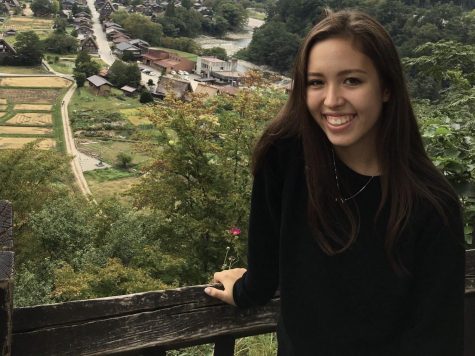
How do you manage these positions and academics?
Maria: Last year, I jumped into everything and it was really hard for me to balance academics with my other activities – especially my position in exec. But because my experience in exec last year (working with Sara, Noe, and Ms. Young) was so eye-opening, I decided that I wanted to take this on, fully. Instead of doing an “average” job in everything, I wanted to give my best in the things that I decided to stick to. While working on my college apps this summer, I was asked to prioritize my values and after a lot of reflection, I’ve been working on prioritizing myself (i.e. putting my physical, mental, and emotional health) first because that’s what lets me do my best in other areas. Of course, it’s easy to say and hard to do, and getting comfortable with time management is a process but it isn’t impossible!
Cristina: Time management. I would say that procrastinating doing homework is very different from procrastinating planning for a meeting, or anything related to the jobs that come with being a leader. If you’re a disorganized leader, not only does it affect you, but it also affects all the other people you’re working with. Because of this, I always want to make sure I know what I am doing in the meeting at least one day prior so that everything runs smoother. I also think that it reduces your stress by a lot, and you’ll enjoy your work more, and it won’t be associated with stress and negativity.
What have you learned from being in these positions?
Maria: When working with a team, you have to understand each of your strengths and play by them. By taking advantage of your individual traits, you become more efficient and united as you see that you are all working towards the same goal! Also, I’ve learned that it’s okay to stand your ground and say things like “no” or “please be quiet”. You, as a leader, are there for the group that you are leading, and because you’re their elected leader, you have to remember that they put their trust in you when you were elected. It is especially important to remember when you begin doubting yourself, that these ‘doubts’ are all in your head. For example, the first few assemblies were really hard and I’d always feel underprepared, especially as I saw everyone’s blank faces. I soon learned not to take that personally, though, as I realized it was a Tuesday morning and most students were really just trying to wake up.
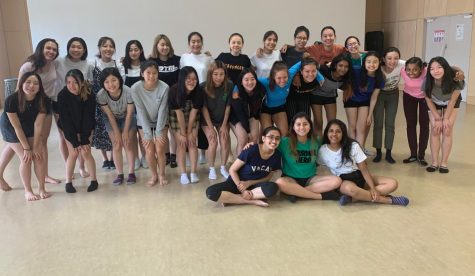
Cristina: I learned how important it really is to communicate constantly with your co-leaders, as well as your council members, or council, or group members. It is so incredibly important to be considered as approachable, and that the label of ‘being a leader’ solely exists because we’re the ones who organize events, and make executive decisions. It is so important that you and your co-leaders are on the same page about everything, and that you have each other’s backs in times of conflict or difficulties. I cannot stress enough how important it is to update each other constantly, and to maintain a good relationship, as it can be reflected in the work over the school year. In addition, if we have good chemistry between ourselves as leaders, the whole group will be able to share this bond, and overall we will work so much better, and in a happy environment.
What were some of the struggles you have encountered along the way?
Maria: As I mentioned earlier, confidence definitely interferes until you grow into your position. Especially if you’re following a great leader like Sara, it’s important to remember that every leader is different and I should not be living up to her leadership, but rather working towards being the best leader I, myself, can be. Also, there will always be someone that will complain or disapprove of your decision but it’s important to keep your justification in mind while staying open realistic feedback.
Cristina: Sometimes things can come up very last minute, and you will need to be open to change at all times. The plans you have made a few weeks ago may not work, and you simply need to be able to adapt, and to accept change.
What do you wish to take away from being in these positions?
Maria: The importance of communication! In teams, in relationships, everywhere. I think it’s the root of all success and a lot of work that we do. Without it, it is very hard to make important decisions, cooperate with others, and reach your goal(s) efficiently. With that, it is also important to trust your gut feeling/instincts and stay organized!
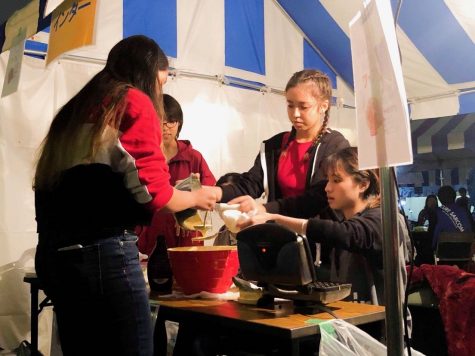
Cristina: I would love for others to share the passion I have for volunteering and understand how every single one of us can truly make a difference in the world. From serving coffee with a warm smile in the morning to going to Ueno Park and serving meals to the homeless, I think that the things we do, that we consider to be small and simple actions, can be an unforgettable one for those you are helping.
Do you have any advice for those who are upcoming leaders or for those who are planning to run for a position?
Maria: If you don’t get elected, please don’t give up! Just because something didn’t work out the first time around, it doesn’t mean it’s it’ll always be like that. For example, I wasn’t elected into StuCo in grade 10 and although I took it personally and it hit me hard, it helped me grow and get to know myself better. If you do get elected, you should take your enthusiasm and just start pitching your ideas! It’s never too early to start planning and others may have great input too. Whatever your leadership position is, it’s important not to doubt yourself too much (especially as there are other reps and students here to support you), stay as organized as possible, and honestly have fun with it. If you like what you’re doing, it won’t feel like a job and you’ll be better at it!
Cristina: I would say only run for a position if you’re truly passionate about it. There will be a lot of work to do, but it will be an enjoyable work as long as you truly enjoy what you are doing. I also think that if you’re truly passionate about something, you can inspire others and bring many innovative ideas to the group, and you will see many positive changes coming along throughout the school year.




